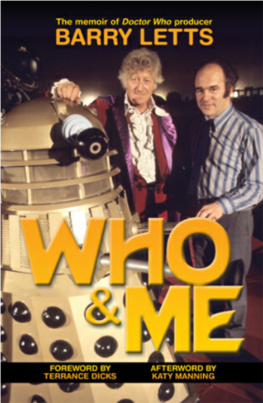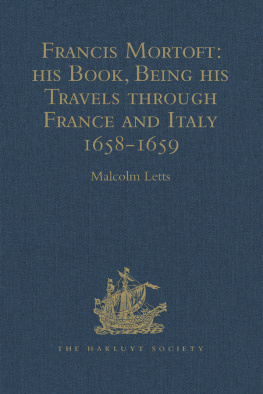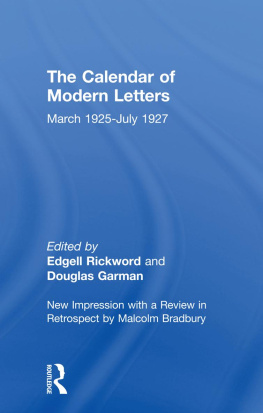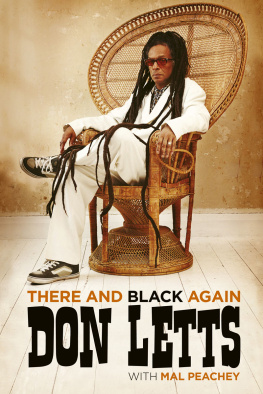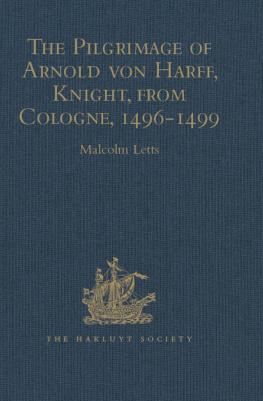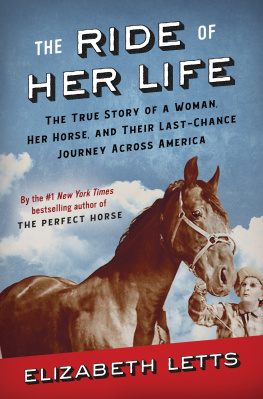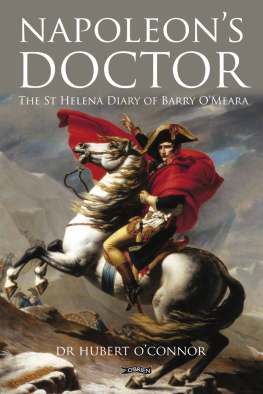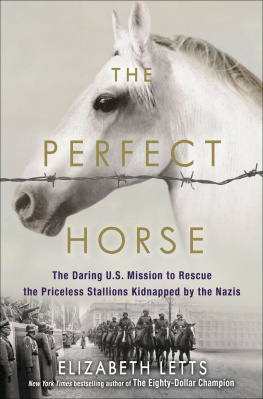WHO & ME
The memoir of
Doctor Who producer
Barry Letts
1925 2009
First published in this form 2009 by Fantom Films
fantomfilms.co.uk
Copyright Barry Letts 2007
Barry Letts has asserted his moral right to be identified as the author of this work in accordance with Section 78 of the Copyright, Designs and Patents Act 1988.
All rights reserved.
A catalogue record for this book is available from the British Library.
Standard Paperback Edition ISBN: 978-1-906263-44-7
Hardback Edition ISBN: 978-1-906263-43-0
Typeset by Phil Reynolds Media Services, Leamington Spa
Printed by MPG Biddles Limited, Kings Lynn
Front cover photo TopFoto
Rear cover photo BBC Worldwide Limited (Radio Times Magazine)
Portions of this book have previously been released by
BBC Audiobooks Ltd.
eBook Formatting by MrLasers.com
CONTENTS
FOREWORD
INTRODUCTION
CHAPTER 1
CHAPTER 2
CHAPTER 3
CHAPTER 4
CHAPTER 5
CHAPTER 6
CHAPTER 7
CHAPTER 8
CHAPTER 9
CHAPTER 10
CHAPTER 11
CHAPTER 12
CHAPTER 13
CHAPTER 14
CHAPTER 15
CHAPTER 16
CHAPTER 17
CHAPTER 18
CHAPTER 19
CHAPTER 20
CHAPTER 21
CHAPTER 22
AFTERWORD
POSTSCRIPT
ACKNOWLEDGMENTS
FOREWORD
What can I say about Barry Letts? Well, to begin with, weve been working colleagues and friends, best friends, for 40 years. We met in 1969 when Barry took over as the new producer of Doctor Who. Its no exaggeration to say that his arrival saved my job, and probably the show as well.
Id been on Who for a year as a sort of assistant trainee script editor. The show was flagging, the script situation was in chaos, and I had no real authority to sort things out. Then the previous producer and script editor left to set up another show, Barry took over and things began to change.
I always used to say, half-jokingly, that about this time four very important things happened on Who as a result of which the once-failing show became a roaring success. The show went into colour; Jon Pertwee became the Third Doctor; Barry Letts became producer; and I became full script editor.
Modesty forbids my saying, I used to go on, which was the most important
In fact, of course, it was the incredibly fortunate combination of all four. But if any one does predominate, it was undoubtedly the arrival of Barry as producer.
The producer is the show. People often ask what a producer does. The answer is everything. He doesnt have any one job; his job is to oversee and facilitate everyone elses. He has, or had in those days, total control.
Barry had the first qualification for being a producer: he didnt want the job. A producer has so much power that people who want it shouldnt be allowed to have it like the seekers of immortality in The Five Doctors. Barrys first love was directing. In fact he insisted on a clause in his producer contract that he was to be allowed to direct the occasional show, and he seized the opportunity to direct a Doctor Who serial whenever possible.
Over the next five years we became good friends and close working colleagues. I can say colleagues because of the generosity of Barrys nature. Although always the boss, he treated me as a friend and equal.
He never said Ive decided but Weve decided
During those years we turned the show around. We sorted out the script situation, evolving a collaborative method of working with writers that resulted in better scripts arriving in time. Ratings rose and, for a few golden years, Doctor Who was one of the BBCs top shows.
It all came to an end when Jon, probably wisely, decided that five years was long enough. Barry was keen to get back to directing, and I went with the flow. It was the end of an era.
What can I say about Barry himself?
The American comedian Will Rogers once said, I never met a man I didnt like. Well, I never met a man who didnt like Barry Letts.
He is kind, modest, sensitive, caring and charming. Since Im none of these things, its a wonder we got on so well. But we did and we do!
This book will tell you about his time as an actor and director before Who.
Above all, it tells about his time as producer of Doctor Who.
I only hope you enjoy reading about it as much as I did sharing it!
Terrance Dicks
September 2009
INTRODUCTION
Im so glad you both could come, said Russell T Davies to Terrance Dicks and me. Ever since we got together, Phil and I have been meaning to ask you to come and have lunch with us, but events just took over. We want you to know that we think your era was the best of the old Who
Over 35 years after we left Doctor Who, Terrance and I had been invited down to Cardiff for the premire screening of the regenerated series. Terrance was script editor when I was producer. There was a reception beforehand, packed with press, but also with a lot of well-known faces to be glimpsed through the crowd.
Before we could even manoeuvre ourselves into the scrum around the wine bottles, Russell T Davies pushed his way through to us, with the producer, Phil Collinson.
And he went on to tell us that they were quite consciously trying to take what we had done and express it in modern-day terms. This first episode made it very clear, picking up the first Jon Pertwee story about the Autons. The intention was to give a signal to the fans that this was their own Doctor Who, brought up to date but keeping the spirit of the show at its best. And theyve succeeded magnificently.
Of course, thereve been some big changes the biggest being the personalities at the centre. All the first eight Doctors and most of their companions talked posh, after all. At first, it was quite a shock to hear Chris Ecclestons northern accent. But its bang-on right. When Who started in 1963, the BBC was middle class to its core, and thought of its target audience as middle class. But Doctor Who is for everybody, and the new producers have recognised the fact.
But quite apart from that, it doesnt matter how much the Doctor changes his surface personality. On the contrary, one of its strengths has been precisely that each Doctor was very different from his predecessors.
I was very aware of that when I was producer. Jon Pertwees dignified dandyish persona had been chosen as a contrast to the clownish space hobo that Patrick Troughton had given us. And after Id cast Tom Baker to take over from Jon, Philip Hinchcliffe, the incoming producer, and I invited him to have lunch with us at the Balzac restaurant (and a very good lunch it was) to meet Bob Holmes, the script editor, and to work out with the three of us his approach to the new characterisation.
The one thing we were all agreed on was that the last thing we wanted was a poor mans Jon Pertwee; and what emerged, as a deliberate contrast, was the wild bohemian fourth Doctor, with his floppy hat and long scarf (though we didnt plan it to be quite so long!).
But the core Doctor is always the same and remains the same in Chris Ecclestons and David Tennants sparkling characterisations: eager for every new experience, and seizing upon each opportunity to fight against those, whether human or alien, who will use evil means to gain their own self-centred ends.
Thank you Russell, thank you Phil, thank you everybody.
I never appeared in Doctor Who when I was an actor. But having spent over 20 years living in the same world that Patrick Troughton, Jon Pertwee and, later, Tom Baker came from; I could talk to them in their own language.

